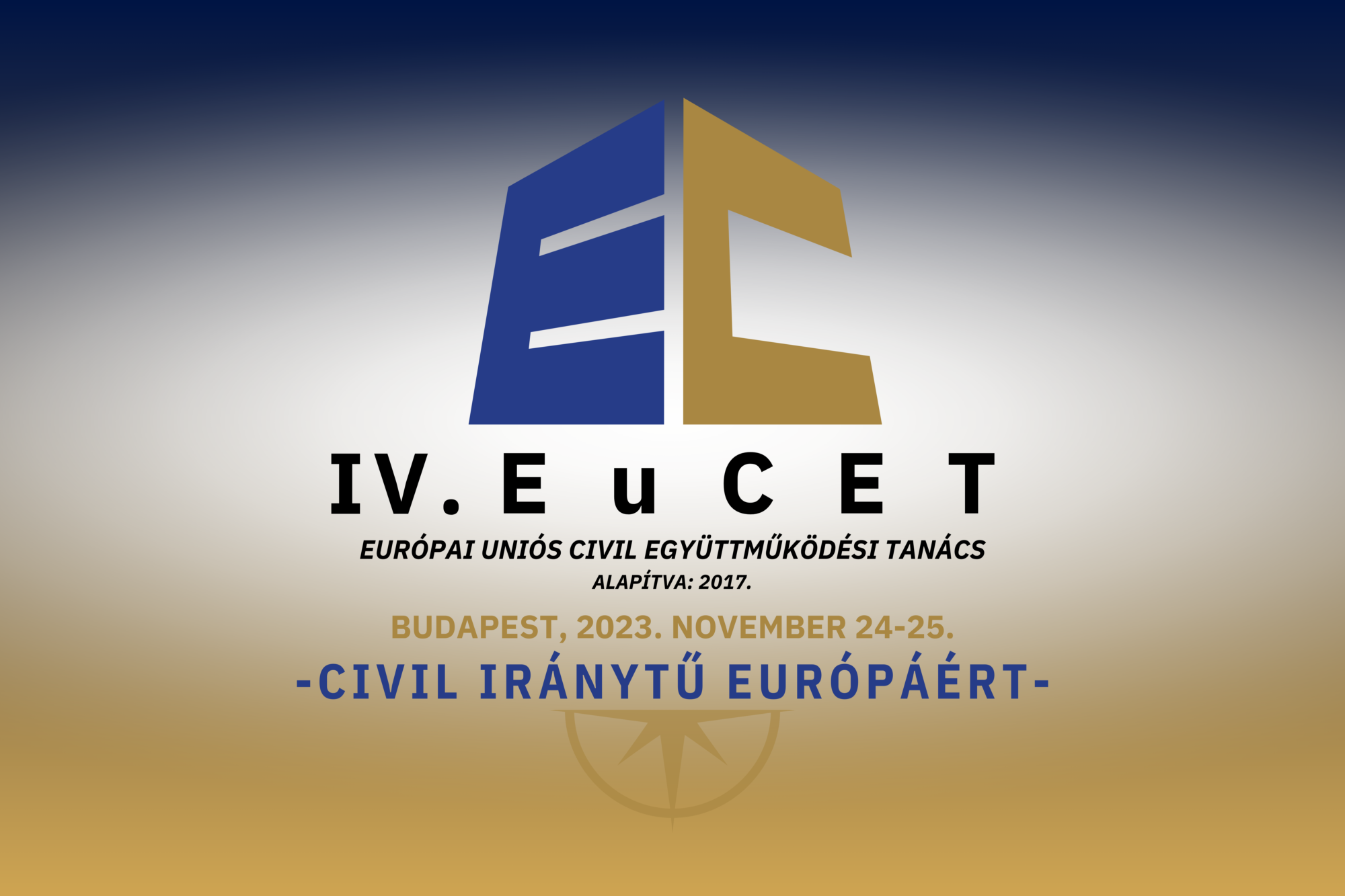Publications
V. EuCET conference October 25, 2024
CÖF-CÖKA is now organizing the conference of the European Union Civil Cooperation Council for the 5th time.
The decisions of the European Court of Justice establishing the primacy of Community law and the sovereign decisions of the constitutional courts of the member states in the light of the progress of the European integration process
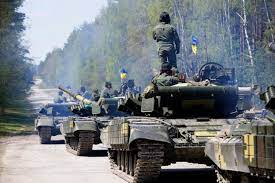 EuCET
EuCET
European arms deliveries to Ukraine: keeping war deals alive from the loophole embargo to the wartime "peace fund"
After the Russian annexation of the Crimean Peninsula and the declaration of the separatist republics in Donbass in 2014, the European Union adopted an arms embargo – in practice an incomplete ban – against Russia, banning the sale of weapons, ammunition, military vehicles and equipment, as well as paramilitary equipment and the direct or indirect sale, delivery, transfer or export of these parts to Russia. The Council's decision of July 2014 (2014/512/KKBP) provided a loophole so that the ban does not affect the export of dual-use products and technologies intended for non-military use and/or non-military end-use, including those used in aeronautics and the space industry, and the ban does not affect the execution of contracts and agreements concluded before August 1, 2014.
EU rules: do they really force greater tax transparency on multinational companies?
In May, the Bundestag – implementing a European Union directive – passed requiring large companies operating in Germany to publish their taxes and profits in detail in the future. This specifically applies to large companies with an annual consolidated turnover of more than 750 million euros, and they will have to submit a report detailing their profits and the taxes paid on them in EU member states.
From Czechoslovakia to the 36-member Union: in the spirit of what principles would Germany continue to build the EU?
According to the German Prime Minister, if the states of Europe do not unite and act together, then the continent will become marginal and will not be able to have a say in the future of the world. Addressing the member states, Scholz asked them to better coordinate their armament projects, and in his speech he essentially advocated a geopolitical union that could compete with Russia and China, and he also confirmed that the Western Balkan states approaching the EU, as well as Ukraine , Moldova and later Georgia should also become part of the community. Scholz called it "really embarrassing" that the integration of the six important Western Balkan countries has made little progress over the past two decades.
Ukraine war: will the military giants lobbying the Washington legislature be the biggest winners?
The war in Ukraine means serious business opportunities for Western, especially American defense manufacturing companies, and based on the known facts, it can be said that Lockheed Martin, Raytheon and Northrop Grumman are among the biggest "winners" of the Eastern European conflict. are. In their case, the share price has risen significantly since the beginning of the Russian military invasion, the mentioned Lockheed, for example, could register an increase of about 38 percent between 2022 and
 Augusto Cocchioni
Augusto Cocchioni
Employee participation in company management
The idea of participation, i.e. the active presence of employees in company management processes, is a very old idea. It is known in many forms: from the institutionalized information of employees and consultation with them to full-fledged co-management. Thus, the role of the worker is transformed: he is no longer merely an executor of the instructions given by the manager, who has nothing to do with the management and fate of the company, but a subject who forms an integral part of the production process.
EuCET, Hungarian-Polish civil meeting
Tomasz Sakiewicz, the editor-in-chief of Gazeta Polska, and László Csizmadia, the president of CÖF-CÖKA in Budapest, renew the cooperation between the civil organizations of the two countries.
 EuCET
EuCET
THE FUTURE OF EUROPE OPINION OF ORGANIZATIONS MEMBERING THE EUROPEAN UNION CIVIL COOPERATION COUNCIL
The economically and socially successful development of the European Economic Community is characterized by the development of the European Union characterized more and more by crises and the unresolved problems that have arisen. Among these problems and crisis phenomena, we consider the following to be the most important.
 EuCET
EuCET
Appeal to the peoples of former socialist countries
In the European Union, a brutal war is raging between the supporters of normality-abnormality, morality-immorality, limited sovereignty-total submission, i.e. nation-states and federalists. Do not forget that in the parliament of the federal Union, your countries - individually - would have only a few percent of their ability to assert their interests.
 Segreteria Generale Rapporti Internazionali
Segreteria Generale Rapporti Internazionali
Contribution of the Italian trade union Segreteria Generale Rapporti Internazionali to the EuCET publication "THE FUTURE OF EUROPE"
The incompetence of the current European Union is becoming more and more obvious, as the tragically chaotic vaccine procurement recently showed. The reformation of the EU on new, moral, political, social and economic bases is increasingly urgent.
 EuCET
EuCET
Debate on the future of the European Union
On January 9, 2020, some leaders of the European Parliament, including Guy Verhofstadt, Manfred Weber, Iratxe García Pérez, Ska Keller and Helmut Scholz, on behalf of the Liberal, Christian Democratic, Socialist, Green and Left factions submitted a motion for a resolution to the European Parliament for which proposed a conference on the future of Europe.
An open letter to Véra Jourova
Open letter to Véra Jourová, Vice-President of the European Commission
OPEN LETTER TO THE PRESIDENT OF THE EUROPEAN PARLIAMENT!
The head of the European Parliament cannot formulate expectations regarding the judicial practice of the CJEU, he cannot put in perspective a possible defeat
Open letter to Charles Michel, President of the European Council
In June, the European Council, which brings together the heads of state and government, agreed on the framework budget and the recovery fund to help the southern member states, with the fact that neither one nor the other is tied to political conditions, e.g. to vague, undefined aspects of the rule of law. We see that the European Parliament, with the assistance of the Commission, wants to overwrite the firm and clear decision with all its might.
OPEN LETTER TO THE PRESIDENTS OF THE EUROPEAN COMMISSION AND EUROPEAN PARLIAMENT!
Our country has been considered a kind of "battlefield state" for almost ten years.
 Konrad Wysocki
Konrad Wysocki
Favorable Hungarian cooperation with the USA
Article by Konrad Wysocki in Gazeta Polska
 Jerzy Targalski
Jerzy Targalski
Imperial taxes and ideology
Article by Jerzy Targalski in Gazeta Polska, 25.11.2020.
 Tomasz Terlikowski
Tomasz Terlikowski
Inculturation in the post-Christian world
Article by Tomasz Terlikowski in Gazeta Polska
 Jacek Liziniewicz
Jacek Liziniewicz
CITIZEN PLATFORM :: THE UNRELEASED CROCODILE
Article by Jacek Lizieniewicz in Gazeta Polska
 Tomasz Sakiewicz
Tomasz Sakiewicz
Would Dmowski and Witos support the Bolsheviks?
Article by Tomasz Sakiewicz, editor-in-chief of Gazeta Polska
 EuCET
EuCET
An open letter
INVITED LETTER TO THE PRESIDENTS OF THE EUROPEAN COMMISSION AND EUROPEAN PARLIAMENT!
 EuCET – European Union Civil Cooperation Council
EuCET – European Union Civil Cooperation Council
Draft decree on citizens' initiative
This decree establishes the procedures and conditions applicable to the citizens' initiative as defined in Article 11 of the EUSZ and Article 24 of the EUSZ.
 EuCET – European Union Civil Cooperation Council
EuCET – European Union Civil Cooperation Council
Reform of the European citizens' initiative
The most important proposed changes to the institution of the European citizens' initiative based on the new draft legislation sent on January 12:
 EuCET European Union Civil Cooperation Council
EuCET European Union Civil Cooperation Council
The European citizens' initiative did not work - Let the EP decide in the future!
The essence of the European Citizens' Initiative is to ask the European Commission to submit a legislative proposal in matters related to which the Union has the competence to create legislation. The citizens' initiative must be supported by at least 1 million EU citizens from at least 7 of the 28 EU member states. The minimum required number of signatures must be collected in each of the 7 member states.
 The management of CÖF-CÖKA
The management of CÖF-CÖKA
OPEN LETTER
We see it as necessary to reverse the harmful process, which in the last 15-20 years has led to the gradual loosening and then emptying of the EU's institutional democracy, standing on the ground of the idea of Europe of nations, and with the proposals made, a responsible and active commitment to the citizens of the nations that construct the EU we want to recreate a leading integration community in its spirit.
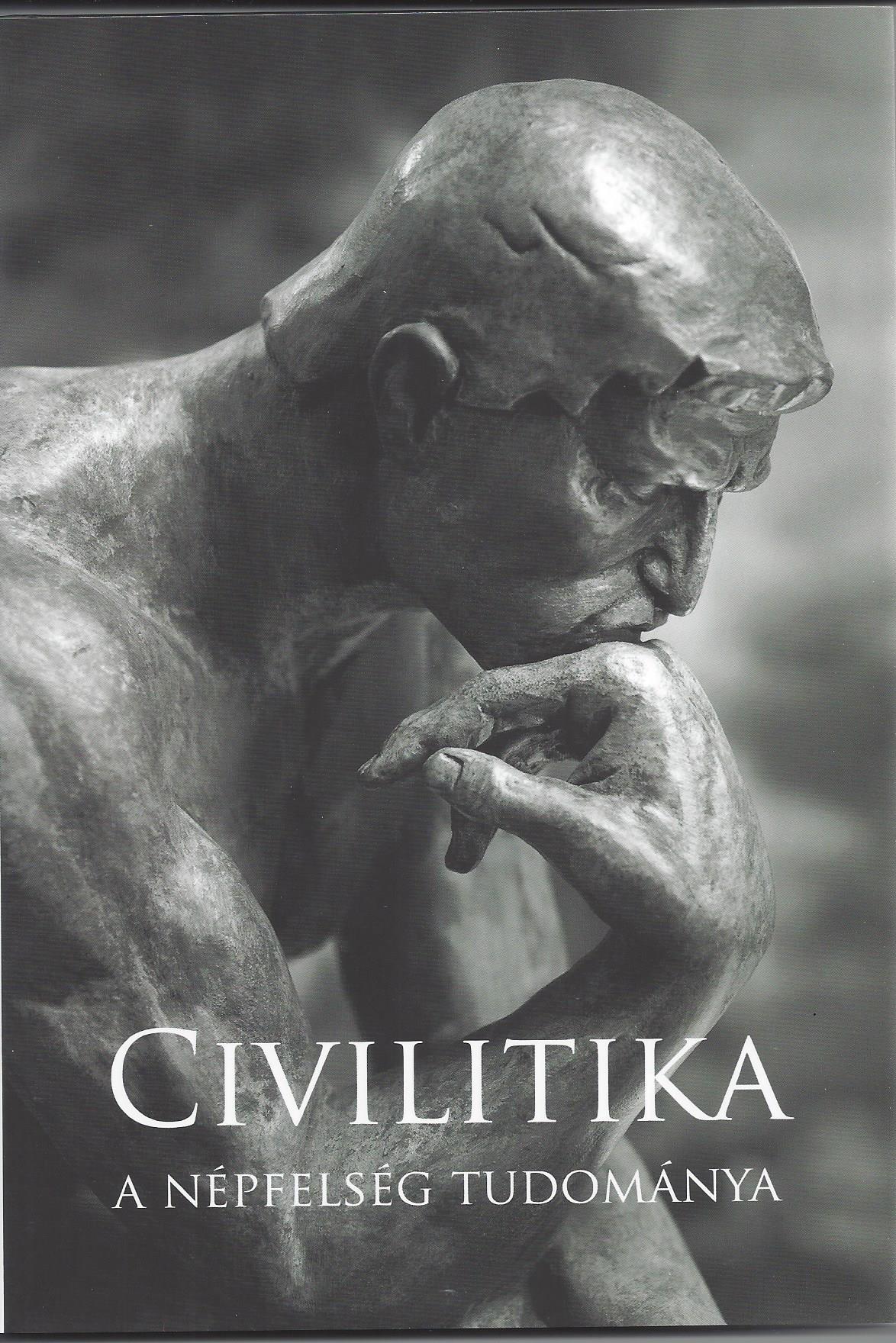 Dr. László Csizmadia, Dr. Tamás Fricz, Dr. jr. Zoltán Lomnici, Dr. Miklós Papp,
Dr. László Csizmadia, Dr. Tamás Fricz, Dr. jr. Zoltán Lomnici, Dr. Miklós Papp,
Civics, the science of popular sovereignty
Nowadays, the knowledge and distortion of political science serves party politics, and is often based on the exploitation of human credulity. Let's say that the basis of the fair operation of the state is the presence of the three branches of power, i.e. the system of checks and balances. For the optimal operation of this system, the parallel presence of politics and civics can be an anteroom.
Speech by Tomasz Sakiewicz, editor-in-chief of the Polish Gazeta Polska
Tomasz Sakiewicz, the editor-in-chief of the Polish Gazeta Polska, talks about the fact that Polish and Hungarian conservative NGOs have created an international network to give their ideas more weight in the European Union.
 Dr. Tamás Fricz
Dr. Tamás Fricz
The division of Europe, the crisis of the Union and civil society
Europe, the European Union, has come to a crossroads, and the governments, parties and civil organizations that want to protect the traditional image, way of life, customs and morality of the continent, which have set an example and direction for centuries, must play a decisive role in this search for a way. towards the world.
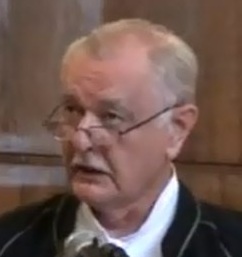 Dr. Zsolt Zétényi
Dr. Zsolt Zétényi
The messages of the historical constitution are timely, helping to interpret the European and Hungarian constitutionalism
According to the traditional interpretation, the historical constitution of Hungary means the entire thousand-year-old historical decree and legislative process, as well as customary law, including judicial decisions, and jurisprudential and political literature closely related to all of these, and thus, in our opinion, all of this can be classified within the scope of the achievements of the historical constitution.
 European Union Civil Cooperation Council.
European Union Civil Cooperation Council.
EuCET - Closing Statement
Having confirmed the goals of the spiritual foundation of EuCET, we believe that the reform of the European Union, dreamed up by the Christian Democratic intellectual predecessors, including Adenauer and Schuman, and the reversal of the direction of community integration, which has been strongly shaken in terms of its historical and cultural identity, are gaining particular relevance now. We believe that today, more than ever, Europe needs the strengthening of Christian culture and cultural identity - as the main basis of Europe's modern organizational form - and the protection of the Christian idealism that has shaped Europe over the centuries.
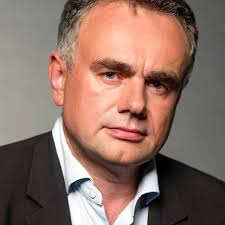 Tomasz Sakiewicz
Tomasz Sakiewicz
Europe of free nations
Debates about the European Union are almost inseparably accompanied by debates about European values. Are these values common to the nations of our continent? Are these values that come from the traditions of nations and are generally accepted? Are these desirable values for the European elite? The definition of the European canon in question has various judicial consequences with a particular political and cultural meaning.
 Miklós Völgyesi
Miklós Völgyesi
Administration of justice and legal interpretation: The collision of the principle of popular sovereignty with the power institutions of the European Union
In the democratic legal states of the European Union, the principle of the sovereignty of the people is uniformly recognized in the operation of the state authorities, because those entitled to vote on the program of the competing parties then cast their votes resulting in a majority decision directly, in a free and secret procedure. The previous electoral victories and defeats of mainstream political parties are a good example of how the party preferences of the "people" who directly exercise supreme power, motivated by their unshakable political commitments, guided by election programs that often contain unscrupulous promises, but fundamentally emotionally motivated, choose and answer the most decisive factor influencing electoral victory for reasons.
 Piotr Kroczek
Piotr Kroczek
Polishness in the preamble of the 1997 Constitution of the Republic of Poland
According to its dictionary meaning, the concept of "Polishness" covers Polish character, traits from the group of Polish characteristics.214 The aim of this study is to answer the following questions: Is the preamble of the 1997 Constitution of the Republic of Poland215 a carrier of Polishness; and does it express Polishness? There are many different methods and tools available for testing Polishness. These are provided by disciplines such as sociology, linguistics, ethnography and others. Among other things, jurisprudence can help in the study and analysis of Polishness.
 Paweł Czubik
Paweł Czubik
The legislative maze of the European Union
Analysis of Decree No. 650/2012 on inheritance matters based on selected questions - qui prodest?
 Marcin Kałduński
Marcin Kałduński
Observations on state sovereignty in the context of the Lotus boat case
International law is based on the sovereignty of states. This sovereignty constitutes the regulatory principle of the said right. Despite the fact that sovereignty has been subject to regular attacks for years by certain representatives of the doctrine, it continues to form the basis of law. International law originates from and ends with states. This is unaffected by the fact that it is addressed to individuals and that individuals have specific, strong rights within states, best exemplified by human rights.
 Katarzyna Kaczmarczyk–Kłak
Katarzyna Kaczmarczyk–Kłak
The composition of the National Judicial Council, with regard to the Constitution of the Republic of Poland of April 2, 1997
It has been pointed out in the literature that the nature of the National Judicial Council can be defined as administrative-municipal-political, however, it is often emphasized that the "most political character" is the group formed by the parliamentarians elected by the Sejm and the two senators elected by the Senate. I share the view that the National Judicial Council is complex in nature, which is supported by its diverse composition, as well as the view that the National Judicial Council does not function as an organ of the judiciary.
Practical issues of constitutional identity and national sovereignty in the European Union
In this study, I will examine the issues of constitutional identity and national sovereignty, as well as what member states' solutions are possible in relation to them, and finally, what constitutional breaking point may arise for our country to protect our constitutional identity. For an overview of the topic, it is worth clarifying the concepts of national sovereignty and European integration, as well as examining the limits of competence of the EU institutions in the basic treaties.
 Gaudi-Tamas the Great
Gaudi-Tamas the Great
Globalist-patriotic attacks against European values and national identity and the defense against them with nation-state, legal and civil means.
Today, more and more Europeans feel that we feel Europe with our hearts, build and protect it with our hands, but we can keep it with our faith and courage. Because there is a huge threat to the traditional national communities in Europe. They want to destroy our European values that have frozen over the centuries, especially our national self-identity, Christian faith and culture, subsidiarity and solidarity, based on scenarios manufactured on the basis of unprecedented and extremely elaborate background power plans. We can agree that "the European Union must not become a centralizing steamroller that destroys the diversity of lifestyles and flattens natural differences". ... It is particularly important for Europe to preserve its versatility and not allow itself to be squeezed into the cage of a European state.
 Czeslaw Kłak
Czeslaw Kłak
Examination of the compliance of Article 267 of the Treaty on the Functioning of the European Union of April 2, 1997 with the Constitution of the Republic of Poland
Examination of the compliance of Article 267 of the Treaty on the Functioning of the European Union of April 2, 1997 with the Constitution of the Republic of Poland
